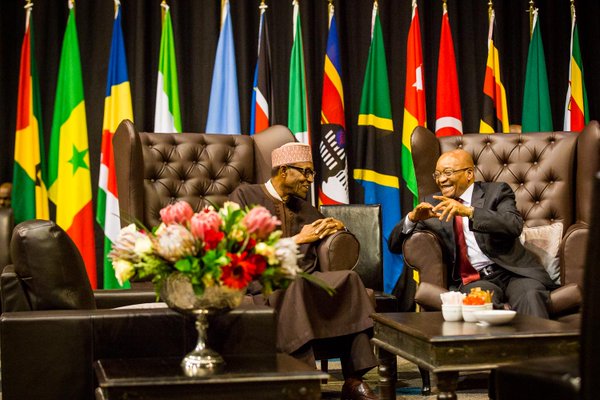
Buhari who spoke today at a joint press conference with President Zuma who is on a state visit to Nigeria, at the Presidential Villa, Abuja, explained why the government of Nigeria had to fine MTN for an act adjudged to be against the security of the country.
Last year, Nigeria fined the South African-owned firm $3.4bn (£2.7bn) for missing a deadline to disconnect cards.Nigeria believes Boko Haram militants use unregistered sim cards to co-ordinate attacks.
President Buhari enlightened his host: “you know how the unregistered (sim cards) are being used by terrorists and between 2009 and today, at least 10,000 Nigerians were killed by Boko Haram.”
Buhari complained that while other mobile phone operators complied with a mid-2015 deadline to register all sim cards, “unfortunately, MTN was very very slow and contributed to the casualties.”
Nigeria’s President said MTN, which is in talks with Nigeria to reduce the fine further, could make gradual payments, out of the $3.4 billion, which was a reduction from the initial $5.2 billion fine on MTN in October.
Last month, MTN said it had dropped court action to challenge the fine, and had paid $250m as part of efforts to reach an “amicable settlement”.
MTN has 231 million subscribers in 22 countries across Africa, Asia and the Middle East. However, Nigeria is its biggest market.
In September, the company was named as most-admired brand in Africa in the Brand Africa 100 awards, beating Samsung, while it was also awarded the continent’s most valuable brand, worth $4.6bn.
MTN was South Africa’s second mobile operator when it was set up in 1994 after the end of apartheid.
It began its expansion across Africa four years later with operations in Rwanda, Uganda and Swaziland. [myad]